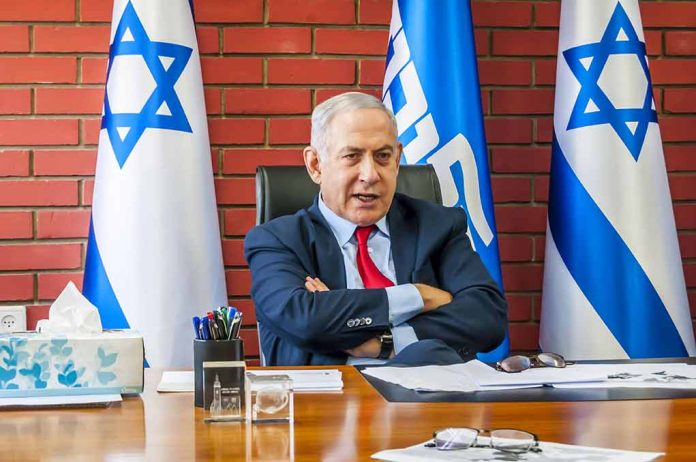
The Biden administration is weighing the decision to withhold military aid to Israel amid tensions over Gaza and looming election strategies.
At a Glance
- Biden administration issued an ultimatum for Israel to improve Gaza’s humanitarian conditions or face aid restrictions.
- U.S. demands include daily aid truck transfers and opening of additional border crossings for Gaza.
- Letter contents reveal U.S. concern over Israel’s current humanitarian actions in Gaza.
U.S. Ultimatum to Israel
The Biden administration has sent a letter to Israeli leaders, demanding significant improvements in Gaza’s humanitarian conditions within 30 days or risk the disruption of U.S. military aid. The letter was signed by Antony Blinken and Lloyd Austin, indicating serious implications if Israel does not comply with the requests laid down. This move, albeit diplomatic, underlines increasing frustration about humanitarian aid delays into the region. The comprehensive demands reflect U.S. law’s requirements for uninterrupted humanitarian aid channels.
The administration has expressed concerns about the low volume of aid entering Gaza and is calling for a strategic response to the rising tensions. “The amount of assistance entering Gaza in September was the lowest of any month during the past year,” emphasized Blinken and Austin in their letter, urging for timely rectifications.
Focus on Gaza’s Humanitarian Status
Israel relies significantly on U.S. military aid, currently facing scrutiny over its handling of the humanitarian situation in northern Gaza. The U.S. has cited Israel’s obstruction of aid deliveries and denied or impeded nearly 90% of humanitarian movements. Concerned NGOs have heightened calls for immediate policy revisions, highlighting the humanitarian plight exacerbated by Israel’s recent actions. Reports from international bodies and NGOs urge the U.S. to suspend arms transfers if Israel does not adhere to international aid standards.
“The United States has warned Israel to increase the flow of humanitarian supplies into the war-devastated Gaza Strip within the next 30 days or risk losing military aid,” The New York Times reported.
Israel continues to assess the contents of the letter, with plans to address U.S. concerns collaboratively. They have reported no limits on aid deliveries, attributing ongoing issues to security challenges posed by Hamas.
The Biden administration sharply intensified pressure on Israel to improve dire conditions for civilians in the Gaza Strip, potentially including a suspension of military aid, if the flow of humanitarian assistance is not increased within a month. https://t.co/wjBNIXYWKA
— The Washington Post (@washingtonpost) October 15, 2024
NGO Reactions and International Concerns
Numerous NGOs, about 25, have appealed to President Biden, demanding a halt to the U.S. arms transfer policy to Israel. They cite violations of international and U.S. law and potential complicity in war crimes. They advocate for an immediate change in U.S. policy to prevent further harm to civilians in the conflict zone. Activists have raised global awareness, pressing for intense diplomatic efforts to avert further escalation.
“We urgently call upon your administration to change its approach and suspend weapons transfers to Israel, which continue to cause devastating harm and risk making the United States complicit in war crimes,” urged the coalition of NGOs.
The U.S.’s decision to condition military aid on Gaza’s aid flow, though controversial, typifies the delicate balance in international relations, especially given the ongoing geopolitical complexities.
Sources:
- U.S. demands Israel improve humanitarian conditions in Gaza or risk military aid
- US gives Israel 30 days to boost Gaza aid or risk cut to military support
- U.S. Warns Israel of Military Aid Cut if Gazans Don’t Get More Supplies
- NGOs to President Biden: End Arms Transfers to Israel Amid Continued Violations of US Law & Policy







